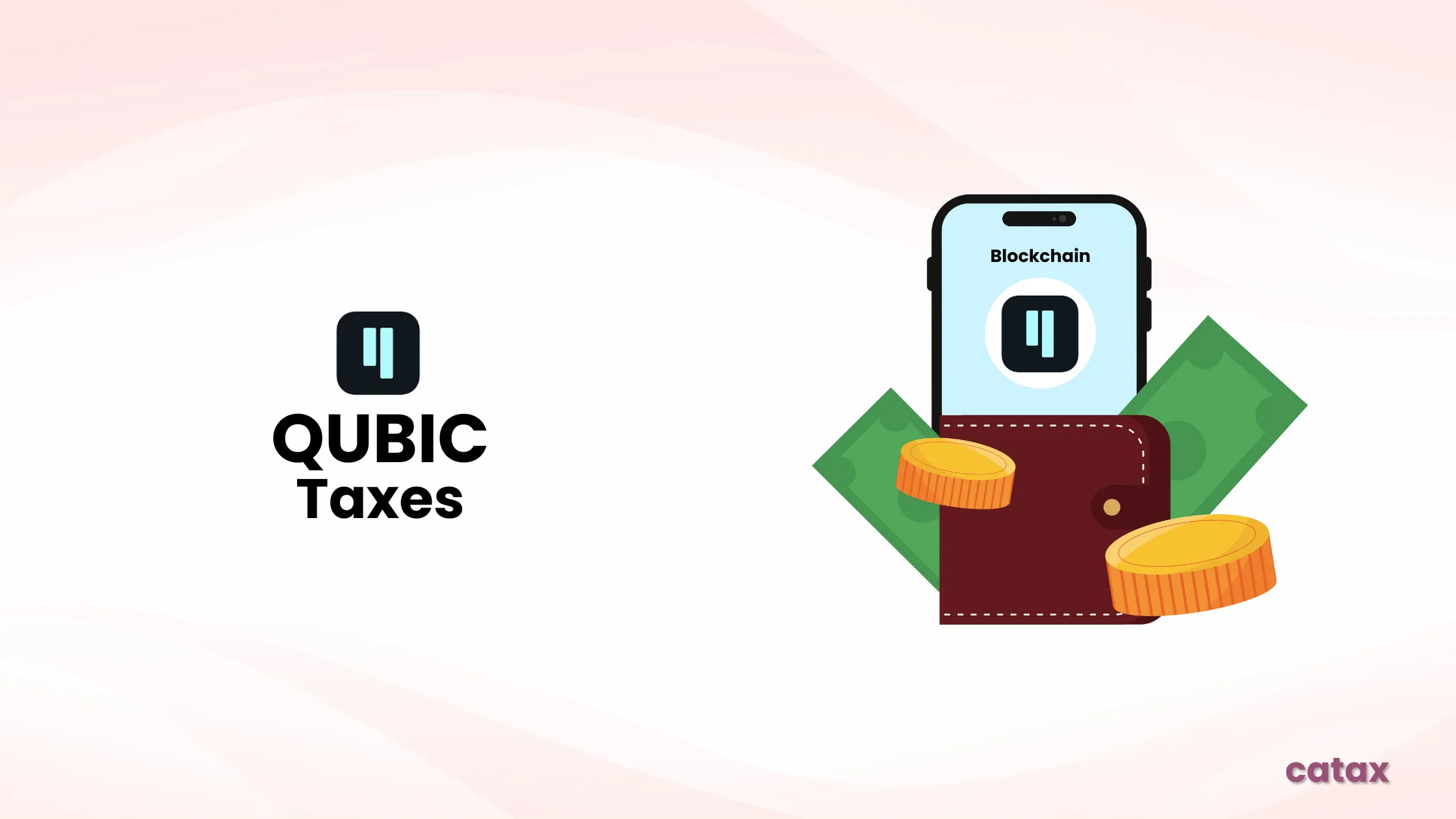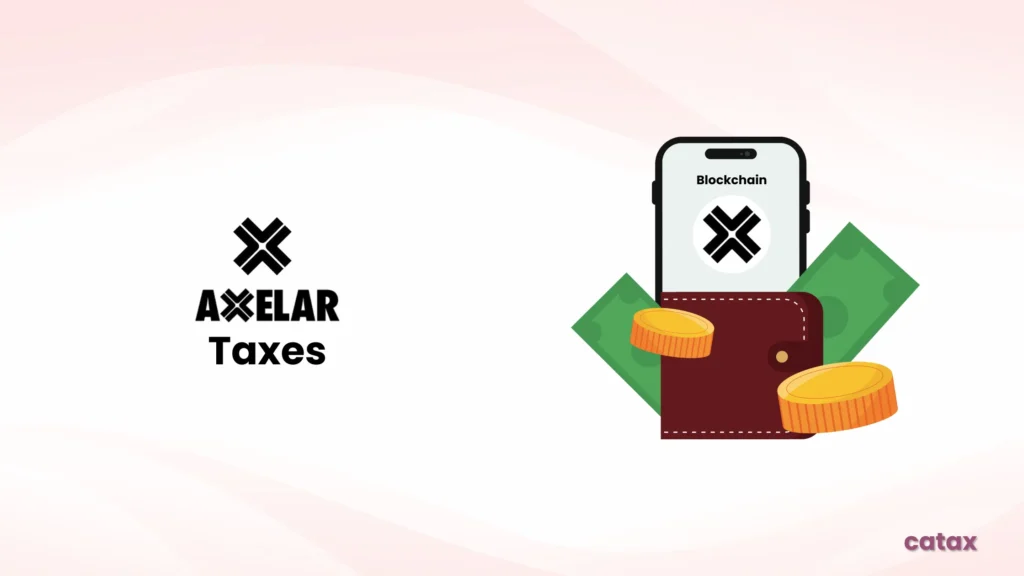Cryptocurrency tax rules vary by country, and Qubic (QUBIC) taxes transactions may be taxed differently based on local regulations. Whether you buy, sell, trade, or stake QUBIC, understanding how tax authorities classify these activities is essential to stay compliant and avoid penalties.
This guide breaks down Qubic tax rules to help you manage your crypto taxes confidently and stay aligned with legal requirements.

- How to Connect Your Qubic Wallet to Catax?
- Are Qubic (QUBIC) Transactions Taxable?
- Can You Deduct Trading Fees and Other Costs?
- How Is Qubic (QUBIC) Taxed Based on Holding Period?
- How Is Staking Income Taxed?
- Can You Claim Qubic (QUBIC) Losses for Tax Benefits?
- How to Stay Compliant with Qubic (QUBIC) Tax Rules?
How to Connect Your Qubic Wallet to Catax?
To easily track your Qubic (QUBIC) transactions and calculate taxes, follow these steps to connect your wallet to Catax:
- Open your Qubic wallet or use a supported block explorer (such as MetaMask, Ledger, or any Qubic-compatible wallet).
- Copy your public wallet address from your Qubic wallet.
On Catax:
- Log in to your Catax account and select your country.
- Choose Chain, then search for Qubic Wallet.
- Paste your public wallet address and click Connect.
Once connected, Catax will automatically import your QUBIC transactions and help you simplify your crypto tax reporting.
Calculate My Taxes ➤Are Qubic (QUBIC) Transactions Taxable?
Yes, in most countries, Qubic (QUBIC) transactions are taxable. Depending on how you use QUBIC, tax authorities may classify it as a capital asset, property, or income.
When Do You Have to Pay Taxes on Qubic (QUBIC)?
You may be required to pay taxes in the following scenarios:
- Selling QUBIC for a profit – If you sell QUBIC for more than you paid, the profit is typically taxed as capital gains.
- Trading QUBIC for another crypto – Swapping QUBIC for Bitcoin, Ethereum, or any other cryptocurrency is generally considered a taxable event.
- Using QUBIC for purchases – If you use QUBIC to buy goods or services, you may be liable for capital gains tax if the token has appreciated in value.
- Earning QUBIC from staking or rewards – QUBIC earned from staking, delegating, or participating in the Qubic ecosystem is usually taxed as income at the time of receipt.
- Receiving QUBIC as payment – If you receive QUBIC as payment for goods or services, the amount is typically taxed as income based on the fair market value at the time it was received.
Tax treatment varies by jurisdiction, so always review your local crypto tax regulations.
Can You Deduct Trading Fees and Other Costs?
Whether you can deduct fees or expenses related to managing QUBIC depends on your country’s tax laws.
Some jurisdictions allow deductions for:
- Trading fees when buying or selling QUBIC
- Network fees for transferring QUBIC between wallets
Other jurisdictions may only permit:
- The original purchase cost (cost basis), without including additional expenses.
Always consult your country’s tax code or a tax professional to understand which deductions are applicable.
How Is Qubic (QUBIC) Taxed Based on Holding Period?
Your tax rate may depend on how long you’ve held your QUBIC tokens:
- Short-term holdings (less than one year) – Typically taxed at standard income tax rates.
- Long-term holdings (over one year) – Some countries offer reduced tax rates for long-term capital gains.
- Flat-rate systems – In some regions, crypto gains are taxed at a fixed rate regardless of holding duration.
Knowing your local tax rules can help you plan better and reduce your overall tax burden.
You can also check out our Country-Specific Guide for Crypto in Your country. This guide provides insights on regulations, tax implications, and compliance measures breifly explained for each country.
How Is Staking Income Taxed?
Staking Qubic (QUBIC) tokens can generate passive income, but how that income is taxed depends on your country’s tax regulations. Some countries tax you on staking rewards when you receive them, while others tax you only when you sell or exchange the rewards.
How Countries Tax Staking Rewards?
- Taxed as income – In many jurisdictions, staking rewards are treated as regular income. This means you’ll be taxed on the value of the QUBIC tokens at the time you receive them, based on standard income tax rates.
- Taxed as capital gains – In other regions, staking rewards are not taxed until you sell or trade them. You’ll only owe taxes on the profit made between the value at receipt and the value at sale.
If you stake QUBIC, understanding how your country treats staking income can help you plan ahead for potential tax obligations—even if you haven’t sold your rewards yet.
Always check your local tax rules before staking Qubic to avoid unexpected liabilities.
Can You Claim Qubic (QUBIC) Losses for Tax Benefits?
Not all trades are profitable. If you sell QUBIC at a loss, you may be able to reduce your overall tax liability. Here’s how different tax systems handle crypto losses:
- Loss offsets – Some countries allow you to use crypto losses to offset capital gains, reducing the total tax owed.
- Loss carryforward – If you didn’t make enough profits this year, some jurisdictions allow you to carry forward losses to offset future gains.
- Limited or no deductions – In some regions, crypto losses may not be deductible, meaning you won’t receive tax relief for losses.
Keep thorough records of your QUBIC trades and transactions to accurately report losses and claim any tax benefits where applicable.
How to Stay Compliant with Qubic (QUBIC) Tax Rules?
With crypto regulations continuing to evolve, staying compliant is key to avoiding penalties. Here’s how you can manage your QUBIC taxes effectively:
- Understand transaction classification – Determine how your country categorizes QUBIC transactions (e.g., income, capital gains, or business income).
- Keep complete records – Maintain logs of all QUBIC transactions, including buys, sells, staking rewards, and transfers.
- Use a crypto tax platform like Catax – Catax can automatically track your QUBIC transactions and generate tax reports based on your region.
By staying organized and informed, you can stay ahead of your Qubic tax reporting and avoid costly mistakes.
Book a Free Consultation Now →

